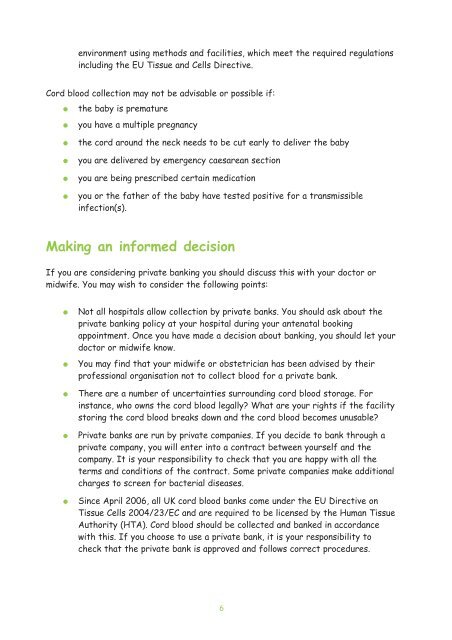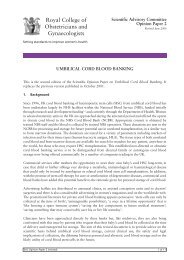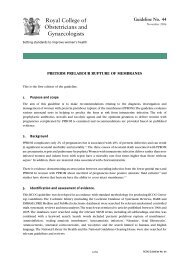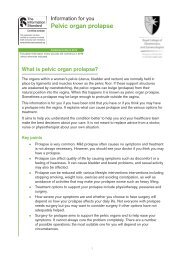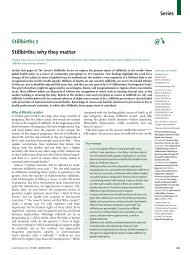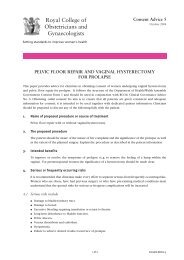Cord blood banking - information for parents
Cord blood banking - information for parents
Cord blood banking - information for parents
You also want an ePaper? Increase the reach of your titles
YUMPU automatically turns print PDFs into web optimized ePapers that Google loves.
environment using methods and facilities, which meet the required regulations<br />
including the EU Tissue and Cells Directive.<br />
<strong>Cord</strong> <strong>blood</strong> collection may not be advisable or possible if:<br />
●<br />
●<br />
the baby is premature<br />
you have a multiple pregnancy<br />
●<br />
●<br />
●<br />
●<br />
the cord around the neck needs to be cut early to deliver the baby<br />
you are delivered by emergency caesarean section<br />
you are being prescribed certain medication<br />
you or the father of the baby have tested positive <strong>for</strong> a transmissible<br />
infection(s).<br />
Making an in<strong>for</strong>med decision<br />
If you are considering private <strong>banking</strong> you should discuss this with your doctor or<br />
midwife. You may wish to consider the following points:<br />
●<br />
●<br />
●<br />
●<br />
●<br />
Not all hospitals allow collection by private banks. You should ask about the<br />
private <strong>banking</strong> policy at your hospital during your antenatal booking<br />
appointment. Once you have made a decision about <strong>banking</strong>, you should let your<br />
doctor or midwife know.<br />
You may find that your midwife or obstetrician has been advised by their<br />
professional organisation not to collect <strong>blood</strong> <strong>for</strong> a private bank.<br />
There are a number of uncertainties surrounding cord <strong>blood</strong> storage. For<br />
instance, who owns the cord <strong>blood</strong> legally? What are your rights if the facility<br />
storing the cord <strong>blood</strong> breaks down and the cord <strong>blood</strong> becomes unusable?<br />
Private banks are run by private companies. If you decide to bank through a<br />
private company, you will enter into a contract between yourself and the<br />
company. It is your responsibility to check that you are happy with all the<br />
terms and conditions of the contract. Some private companies make additional<br />
charges to screen <strong>for</strong> bacterial diseases.<br />
Since April 2006, all UK cord <strong>blood</strong> banks come under the EU Directive on<br />
Tissue Cells 2004/23/EC and are required to be licensed by the Human Tissue<br />
Authority (HTA). <strong>Cord</strong> <strong>blood</strong> should be collected and banked in accordance<br />
with this. If you choose to use a private bank, it is your responsibility to<br />
check that the private bank is approved and follows correct procedures.<br />
6


